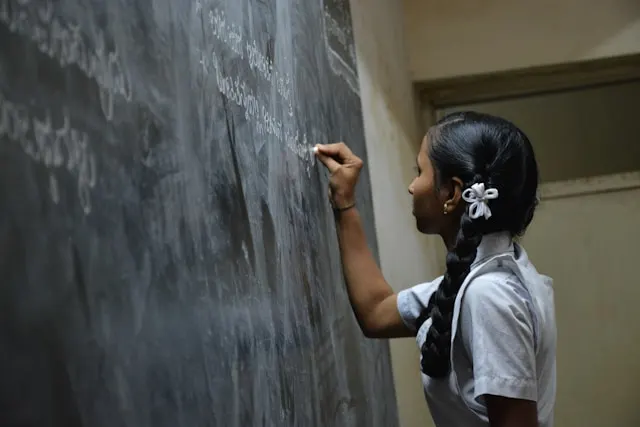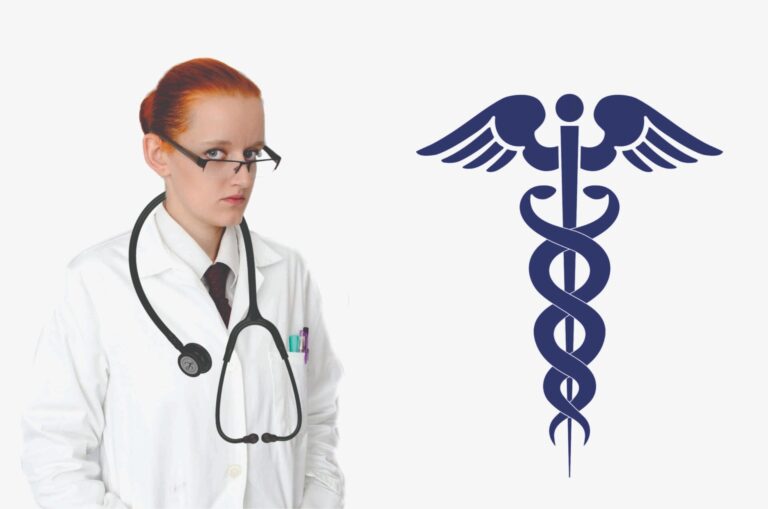Higher studies after Std. 12th Science in India
Table of Contents
ToggleHigher studies after Std. 12th Science in India: Exploring further.
Higher studies after Std. 12th Science in India, you have various career options to choose from, depending on your interests and the specific subjects you studied. Here are some of the most common career paths for Science students:
B. Sc. in Science.
B. Sc. in Physics:
This program focuses on the study of matter, energy, and the fundamental forces of nature. Students learn about classical and modern physics, including topics like mechanics, electromagnetism, quantum mechanics, and astrophysics.
B. Sc. in Chemistry:
Chemistry majors delve into the study of matter, its properties, composition, and transformations. Specializations may include organic chemistry, inorganic chemistry, physical chemistry, or analytical chemistry.
B. Sc. in Mathematics:
Mathematics programs cover a wide range of mathematical concepts, including algebra, calculus, statistics, and geometry. This degree can lead to careers in fields like data analysis, finance, and academia.
B. Sc. in Biology:
Biology majors study living organisms, their structures, functions, and interactions. You can specialize in areas such as botany, zoology, microbiology, or genetics.
B. Sc. in Electronics:
Electronics programs cover electronic circuits, digital systems, microelectronics, and communication systems. Graduates can work in electronics manufacturing or telecommunications.
B. Sc. in Geology:
Geology programs explore the Earth’s structure, rocks, minerals, and geological processes. Graduates may work in fields like mineral exploration or environmental consulting.
B. Sc. in Statistics:
Statistics majors learn statistical methods, data analysis, and research design. This degree is valuable for careers in data science, market research, and quality control.
B. Sc. in Biotechnology:
Biotechnology programs combine biology and technology to study and manipulate biological systems. Graduates can work in pharmaceuticals, biotech research, and genetics.
B. Sc. in Agriculture:
Agriculture majors study crop production, soil science, animal husbandry, and agricultural economics. This degree can lead to careers in farming, agribusiness, and agricultural research.
B. Sc. in Microbiology:
Microbiology programs focus on the study of microorganisms, including bacteria, viruses, and fungi. Graduates can work in healthcare, research, or the food industry.
B. Sc. in Forensic Science:
Forensic science programs cover the application of scientific techniques to solve crimes. Graduates may work as forensic scientists, crime scene investigators, or forensic analysts.
B. Sc. in Food Technology:
Food technology programs focus on food production, processing, and quality control. Graduates can work in the food industry, ensuring food safety and quality.
Keep in mind that specific programs and specializations may vary between universities and colleges. It’s essential to research different institutions and their offerings that aligns with your interests and career goals.
Engineering:
Higher studies after Std. 12th Science in India open doors to pursue a Bachelor of Engineering (B.E.) or Bachelor of Technology (B. Tech) degree in various branches like Mechanical, Civil, Electrical, Computer Science, Electronics, and more. Engineering offers opportunities in sectors such as IT, manufacturing, construction, and telecommunications.
Civil Engineering:
Civil engineers design and construct infrastructure such as buildings, bridges, roads, and dams. They also work on environmental and geotechnical projects.
Mechanical Engineering:
Mechanical engineers deal with the design and manufacturing of machinery, equipment, and systems. They work in industries like automotive, aerospace, and manufacturing.
Electrical Engineering:
Electrical engineers work on the design, development, and maintenance of electrical systems, power generation, and electronics.
Electronics and Communication Engineering:
This branch focuses on electronics, telecommunications, and signal processing. Graduates can work in industries related to telecommunications, embedded systems, and circuit design.
Computer Science and Engineering:
Computer science engineers specialize in software development, computer networks, cybersecurity, and artificial intelligence.
Information Technology:
IT engineering programs also focus on software development, database management, and information systems.
Electrical and Electronics Engineering (EEE):
EEE combines aspects of electrical and electronics engineering, covering both electrical power systems and electronics.
Aerospace Engineering:
Aerospace engineers work on the design, development, and maintenance of aircraft and spacecraft.
Chemical Engineering:
Chemical engineers deal with the design and operation of chemical processes and industrial plants. They work in sectors like petrochemicals, pharmaceuticals, and environmental engineering.
Biotechnology Engineering:
Biotechnology engineers apply biological and chemical principles to develop products and processes in areas like healthcare, agriculture, and environmental management.
Automobile Engineering:
Automobile engineers focus on designing and manufacturing vehicles and their components.
Civil and Environmental Engineering:
This specialization combines civil engineering principles with environmental engineering, focusing on sustainable infrastructure and environmental conservation.
Instrumentation Engineering:
Instrumentation engineers design and maintain instruments and control systems used in various industries.
Mechatronics Engineering:
Mechatronics engineers integrate mechanical, electronic, and computer engineering to design smart systems and robotics.
Mining Engineering:
Mining engineers work on the extraction of minerals and resources from the Earth’s crust while ensuring safety and environmental protection.
Marine Engineering:
Marine engineers are responsible for the operation and maintenance of ships, offshore structures, and marine systems.
Petroleum Engineering:
Petroleum engineers work in the oil and gas industry, focusing on the extraction, production, and processing of hydrocarbons.
Textile Engineering:
Textile engineers deal with the design, production, and maintenance of textiles and fabrics.
Metallurgical Engineering:
Metallurgical engineers work with metals and alloys, including their extraction, processing, and manufacturing.
Naval Architecture and Ship Building:
This branch focuses on the design and construction of ships and marine structures.
Production Engineering:
Production engineers optimize manufacturing processes and systems for efficiency and quality.
Robotics Engineering:
Robotics engineers specialize in the design, development, and programming of robots for various applications.
The availability of these branches may vary from one university or college to another, and some institutions may offer additional specialized branches or interdisciplinary programs. Students should research the offerings that suits their career aspirations.
Medical Sciences:
Higher studies after Std. 12th Science in India, If you’ve studied Biology, you can aim to become a doctor, or can also explore careers in allied health fields like nursing, physiotherapy, and pharmacy. Medical sciences encompass a wide range of branches and specializations dedicated to the study of the human body, diseases, healthcare, and medical research. Here are some common branches in medical sciences:
Medicine (MBBS):
This is the most common medical degree, and it prepares students to become medical doctors who diagnose and treat diseases, prescribe medications, and provide medical care to patients.
Dentistry (BDS):
Dentists specialize in the diagnosis and treatment of oral health issues, including dental surgeries, orthodontics, and general dental care.
Nursing (B.Sc. Nursing):
Nursing professionals provide patient care, administer medications, and assist doctors in various healthcare settings, including hospitals and clinics.
Pharmacy (B.Pharm):
Pharmacists are experts in medications and their proper use. They dispense prescriptions, counsel patients, and work in drug development and research.
Physiotherapy (BPT):
Physiotherapists help patients recover from physical injuries or conditions through exercises, manual therapy, and other non-invasive techniques.
Occupational Therapy (BOT):
Occupational therapists assist individuals in regaining skills for daily living and work activities after illness or injury.
Medical Laboratory Technology (B.Sc. MLT):
Medical laboratory technologists perform tests on patient samples, helping doctors diagnose diseases.
Radiology (B.Sc. Radiography):
Radiographers specialize in operating imaging equipment like X-rays, MRIs, and CT scans to assist in diagnosing medical conditions.
Medical Imaging Technology:
Technologists in this field focus on medical imaging technologies and may specialize in areas like ultrasound or nuclear medicine.
Medical Microbiology (B.Sc. Microbiology):
Microbiologists study microorganisms like bacteria, viruses, and fungi to understand their impact on human health and disease.
Medical Genetics:
Genetic counselors and researchers work with patients and their families to assess genetic risks and disorders.
Biomedical Engineering:
Biomedical engineers design and develop medical devices, equipment, and technologies used in healthcare.
Health Administration (BHA/BHM):
Health administrators manage healthcare facilities, healthcare systems, and healthcare policies.
Public Health (MPH):
Public health professionals work on disease prevention, health promotion, and community health initiatives.
Clinical Psychology:
Clinical psychologists diagnose and treat mental health disorders and provide therapy to patients.
Nutrition and Dietetics (B.Sc. Nutrition and Dietetics):
Dietitians and nutritionists help individuals make healthy food choices and manage dietary requirements.
Audiology and Speech-Language Pathology (B.Sc. Audiology and Speech-Language Pathology):
Audiologists and speech-language pathologists work with individuals to diagnose and treat communication and hearing disorders.
Orthopedics (B.Sc. Orthopedics):
Orthopedic technologists assist orthopedic surgeons in treating musculoskeletal conditions and injuries.
Optometry (B. Optom):
Optometrists examine eyes for vision problems and prescribe corrective lenses or other treatments.
Emergency Medicine:
Specialists in emergency medicine provide immediate medical care to patients in critical conditions in emergency departments.
These are branches in medical sciences, each offering unique career paths and opportunities to contribute to healthcare and medical research. Students should research the offerings that suits their career aspirations.
Biotechnology:
You can pursue B.Tech in Biotechnology and work in research labs, pharmaceutical companies, or biotech firms.
Computer Science/Information Technology:
Higher studies after Std. 12th Science in India If you’ve studied Computer Science, you can pursue B.Sc. or B. Tech in Computer Science or IT. This field offers careers in software development, cybersecurity, data analysis, and more.
Astronomy and Space Science:
Pursue a Bachelor’s degree in Astronomy or Space Science and work in research institutions, planetariums, or space agencies.
Environmental Science:
Study the environment and its conservation by pursuing a degree in Environmental Science.
Marine Biology:
If you have a passion for marine life, consider pursuing Marine Biology. Opportunities exist in research institutions, marine conservation organizations, and fisheries.
It’s crucial to choose a career path that aligns with your interests and strengths. Additionally, keep in mind that some careers may require further education or specialized training beyond the undergraduate level. Research your chosen field thoroughly and make an informed decision.
After completing the XII/12th grade in the Science stream in India, students often consider pursuing higher studies after Std. 12th Science in India. There are several qualifying entrance exams for various undergraduate programs in science, engineering, medicine, and other fields. Here are some of the prominent entrance exams for different courses:
For Engineering and Technology:
- Joint Entrance Examination Main (JEE Main): For admission to undergraduate engineering programs (B.Tech/B.E.) in NITs, IIITs, and other engineering institutions.
- Joint Entrance Examination Advanced (JEE Advanced): For admission to the Indian Institutes of Technology (IITs) for B.Tech and Integrated M.Tech programs.
- BITSAT (Birla Institute of Technology and Science Admission Test): For admission to B.Tech programs at BITS Pilani, Goa, and Hyderabad campuses.
- VITEEE (VIT Engineering Entrance Examination): For admission to B.Tech programs at Vellore Institute of Technology (VIT).
- SRMJEEE (SRM Joint Engineering Entrance Examination): For admission to B.Tech programs at SRM Institute of Science and Technology.
- COMEDK UGET (Consortium of Medical, Engineering and Dental Colleges of Karnataka Undergraduate Entrance Test): For admission to engineering colleges in Karnataka.
For Medical and Allied Sciences:
- NEET (National Eligibility cum Entrance Test): For admission to undergraduate medical (MBBS) and dental (BDS) programs in government and private colleges.
- AIIMS MBBS Entrance Exam (All India Institute of Medical Sciences – MBBS Entrance Exam): For admission to the MBBS program at AIIMS institutes.
- JIPMER MBBS Entrance Exam (Jawaharlal Institute of Postgraduate Medical Education and Research): For admission to the MBBS program at JIPMER, Puducherry.
For Pharmacy:
- NIPER JEE (National Institute of Pharmaceutical Education and Research Joint Entrance Exam): For admission to various pharmacy courses at NIPER institutes.
For Architecture:
- NATA (National Aptitude Test in Architecture): For admission to undergraduate architecture programs in India.
For Science and Research:
- Kishore Vaigyanik Protsahan Yojana (KVPY): A scholarship program and aptitude test for students interested in pursuing a career in research.
For Agriculture and Allied Sciences:
- ICAR AIEEA (Indian Council of Agricultural Research All India Entrance Examination): For admission to undergraduate agriculture and allied sciences programs.
- KEAM (Kerala Engineering Architecture Medical Examination): For admission to engineering, medical, and agricultural programs in Kerala.
- OUAT (Orissa University of Agriculture and Technology) Entrance Exam: For admission to agriculture and technology programs in Odisha.
For Other Science and Technology Fields:
- NCHM JEE (National Council for Hotel Management and Catering Technology Joint Entrance Exam): For admission to hotel management programs.
- NID DAT (National Institute of Design – Design Aptitude Test): For admission to design programs at NID.
- NIFT Entrance Exam (National Institute of Fashion Technology Entrance Exam): For admission to fashion design and technology programs at NIFT campuses.
- Integrated M.Sc. Programs Entrance Exams: Various universities offer integrated M.Sc. programs in sciences, and they conduct their entrance exams.
Please note that the eligibility criteria, exam patterns, and admission processes may vary for each entrance exam and institution. It’s essential to check the specific requirements of the program and institution you are interested in and prepare accordingly.
Higher studies after Std. 12th Science in India offers an array of promising paths across diverse fields, from traditional sciences like Physics, Chemistry, and Biology to cutting-edge disciplines such as Biotechnology, Aerospace Engineering, and Data Science. The landscape encompasses a wide spectrum of opportunities, whether one aspires to become a doctor, engineer, researcher, or innovator. Navigating through the multitude of options requires careful consideration of personal interests, academic strengths, and career aspirations.
Additionally, for those exploring different streams beyond Science, there are equally enriching pathways in Commerce and Arts, each offering unique avenues for growth and fulfillment. To explore further, one can delve into articles detailing the opportunities and pathways available in Commerce and Arts, thus providing a comprehensive guide for students embarking on their educational journey.






